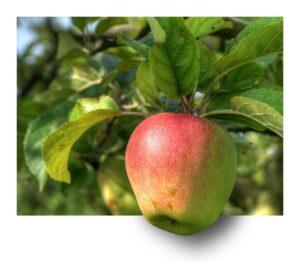From 2024, March 25 is the day of Hungarian fruit landscape varieties
Preserving the genetic diversity of our cultivated crops is in the fundamental interest of domestic agriculture. These include the fruit landscape varieties that have long been present in the Carpathian Basin, which are more adaptable and resistant to climate and ecological changes. The Day of Hungarian Fruit Landscape Varieties draws attention to the preservation of the genetic diversity of these landscape varieties.

(Photo: Pixabay)
Domestic plant growing and horticultural culture has a long history in the Carpathian Basin. Recognized landscape varieties are those characteristic varieties that have developed in the course of continuous cultivation in individual landscapes, well adapted to the climatic conditions of the given region, as a result of natural and artificial selection. There are currently 81 state-recognized fruit landscape varieties. Most of these have now been pushed out of cultivation, but they can still be found in the Carpathian Basin. The collection and genebank preservation of these fruit landraces has been going on for decades in Hungary. In addition to the National Center for Biodiversity and Gene Preservation, many gene bank and private collections have been established as a result. The fruit grower’s agreement on the preservation of the long-grown fruit landscape varieties in the Carpathian Basin was launched in 2011, and has been coordinated by the National Center for Biodiversity and Gene Conservation since 2013. As part of the agreement, fruit orchards that also function as demonstration gardens were created from native Carpathian fruit landscape varieties. In addition to the reintroduction and utilization of varieties, their goal is to preserve genetic diversity and pass on the knowledge related to traditional fruit growing and processing. With their spread, these breeds provide a genetic basis for solving local problems arising from global climate change and the ecological and resource crisis.
By March 2024, a total of 329 gardens were created as part of the fruit grower agreement and 13,728 fruit tree grafts were planted
The NBGK organizes a professional event twice a year for garden owners who join the agreement in order to expand their knowledge. The gardens also have an educational role, since young people living in the countryside can learn about the possibilities of adaptive fruit growing and landscape-friendly farming. Since 2022, the NBGK and the Ministry of Agriculture have announced the “landscape variety of the year” every year. The campaign draws attention to the importance of preserving biological diversity and maintaining the diversity of plant and animal species used in agriculture. Since 2012, the state recognition of fruit landscape varieties can be done with a simplified procedure in order to promote the cultivation and trade of old varieties.
AM
Related news
AM: government helps dairy farmers with new measure
🎧 Hallgasd a cikket: Lejátszás Szünet Folytatás Leállítás Nyelv: Auto…
Read more >








